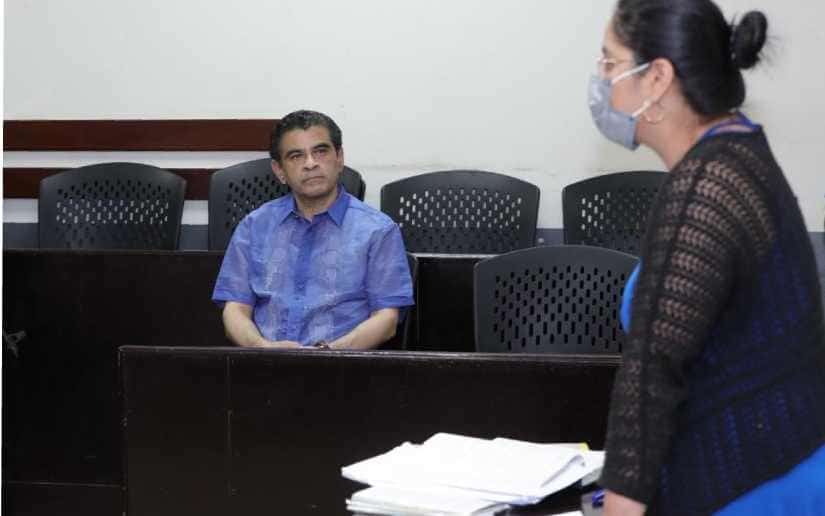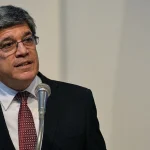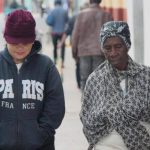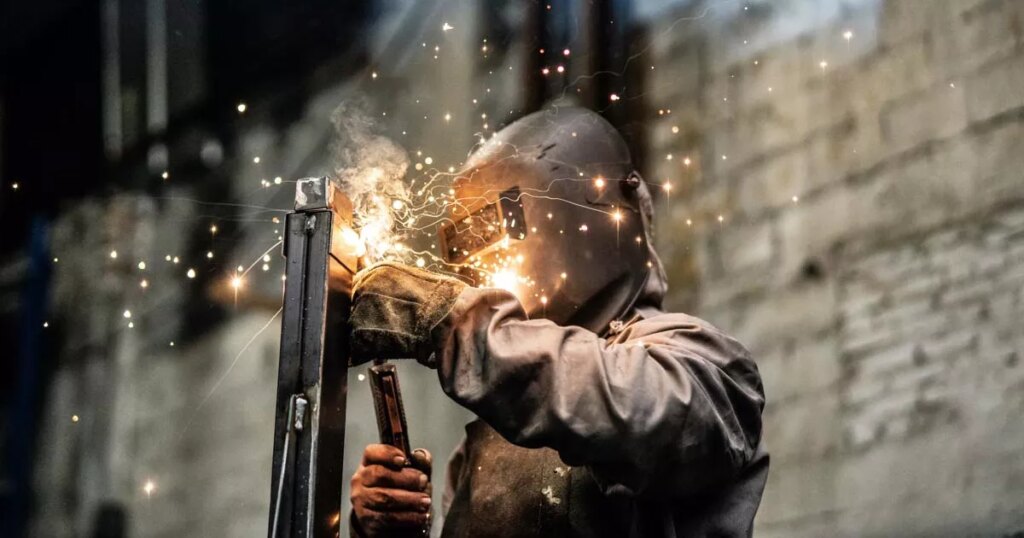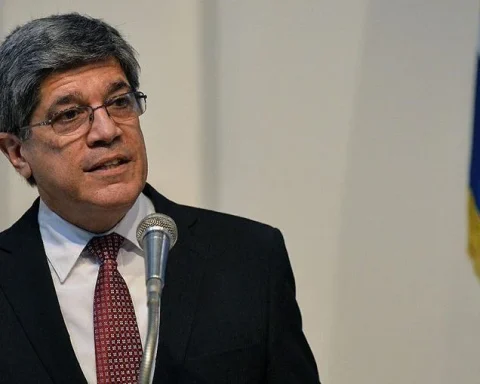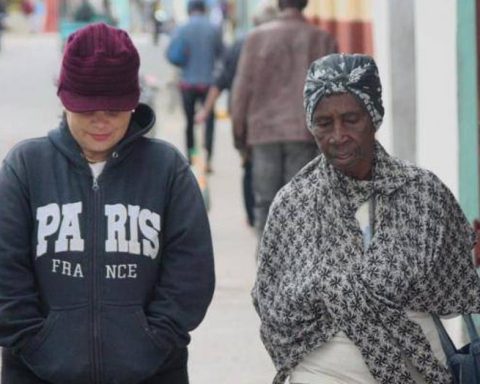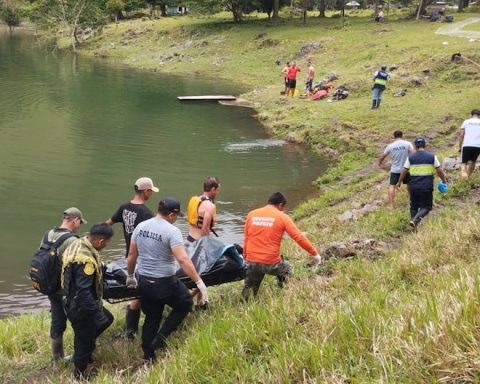The political trial led by the dictatorship of Daniel Ortega and Rosario Murillo against Bishop Rolando Álvarez is “absolutely null,” despite the fact that due to the control of the Sandinsita Front in the justice system, the bishop of Matagalpa and apostolic administrator of the Diocese of Estelí “is already condemned”, affirm the human rights defender Pablo Cuevas and the former rector of the American University (UAM) Ernesto Medina, when assessing the trial order against the religious.
“The independence of powers in our country is null. Everything is balanced before those who rule: the presidential couple. If we are objective in this case, we have to say that the monsignor has already been sentenced. Since this process began, surely there has been a ruling in this regard,” said Cuevas, director of the Nicaraguan Human Rights Ombudsman (DNDH), whose offices are in the United States.
Cuevas participated this Wednesday, January 11, in a panel moderated by journalist Elmer Rivas on the program Tonightto analyze the situation of Álvarez, one of the most respected voices of the Episcopal Conference for his defense of human rights in Nicaragua and who has been prosecuted by the dictatorship since last December 13, when the Sandinista prosecutor Manuel Rugama accused him and the case was assigned to judge Gloria María Saavedra Corrales.
On January 10, in a closed-door hearing, Judge Saavedra, of the Managua Tenth Penal Court, upheld the house-to-prison measure against the religious and referred the case in which the State accuses him for the alleged crimes of “propagation of false news” and “conspiracy to undermine national integrity.”
Cuevas pointed out some of the irregularities committed so far: they removed the bishop from his natural judge who should have been the one from Matagalpa, they also violated the 90-day window that was given to accuse the suspects before the courts and charged him 144 days later. They also keep him in isolation and the judicial process is carried out in secrecy without even allowing him to name a defense attorney he trusts, since he is represented by a public defender.
“In many of these processes, the defense lawyer is aware of the accusation until it is already in trial. He goes unprepared, point blank, this means that we cannot talk about an effective defense. It is the violation of another constitutional right and, if we are objective, the sentences of these processes are made in El Carmen”, Cuevas ratified, referring to the Ortega residence.
According to newspaper records, Judge Saavedra and prosecutor Rugama have a history of persecuting political prisoners. They are part of the judicial machinery that has sentenced the 235 prisoners of conscience in the country, the same ones to whom Ortega recently denied the possibility of releasing them.
The human rights lawyer lamented the prison conditions, to which priests such as Father Enrique Martínez Gamboa, accused last October for the same crimes as Álvarez, are subjected. Cuevas says that the priest has lost 22 pounds and initially the Police did not allow him access to his medicine.
In contrast to the abuses of the State, the human rights defender highlighted the moral stature of Monsignor Álvarez and also recalled that the fabrication of evidence against him was clear from the beginning. He then cited the case of the journalist from Matagalpa, Eduardo Montenegro, who months before told him that he received pressure from the FSLN political secretary in that department to incriminate the bishop.
“It was evident that the authorities of the Sandinista party in Matagalpa were fabricating evidence to try to harm the monsignor,” said Cuevas, who assured that he had access to audio recordings in which he could hear the Sandinista official talking with Montenegro.
“We can only repudiate mistreatment” against Rolando Álvarez
For the former rector of the UAM and professor, Ernesto Medina, who participated in the failed attempts at national dialogue with the regime in 2018 and 2019, the process against Álvarez is an aberration that is exposing Ortega and Murillo to the international community.
Medina regretted that Nicaraguans are also witnessing the manipulation of the judicial system with the aim of satisfying the desire for power of the ruling couple, while they are merciless with a religious man who has stood out as a pastor, preaching the gospel among the peasants. from the north of the country.
“His role in the national dialogue was that of a pastor who did everything possible to find a peaceful solution to the Nicaraguan crisis. He was one of the few bishops who gave everything for a solution to come out. We can only repudiate and condemn the treatment that is being given now. Only for having done what any disciple of Jesus does: lead by example,” lamented Medina.
The persecution against the bishop —the first to be arrested by the dictatorship— is part of the state repression against the Catholic Church: seven more priests face legal cases, 11 priests are in exile, 18 nuns were expelled in 2022, just like the apostolic nuncio Waldemar Stanislaw Sommertag. The State also closed radio stations in the Diocese of Matagalpa.
In September 2022, Ortega accused the Nicaraguan religious of “coup plotters” without evidence and for the first time of instigating his assassination in 2018. In a virulent speech, he called the Catholic Church a “perfect dictatorship”. In reality, the priests, whom he accuses with such vitriol, received the victims of the repression in the temples and denounced the injustices committed by the State.
An independent study, prepared by the lawyer Martha Patricia Molina, revealed months ago that the Catholic institution received 396 attacks between 2018 and October 2022. The regime prohibited religious processions, as was noted this Tuesday, January 10, in the indigenous neighborhood of Monimbó, where the chief of the Masaya Police closed the doors of the temple to the parishioners to prevent the exit to the street of San Sebastián.
“The objective of Daniel Ortega and Rosario Murillo is the absolute control of power. Build a single-party regime with the figure of a great leader, to whom all the people must pay homage where the laws and normal elements of a democratic society no longer work,” Medina told Esta Noche.
For the professor, the Ortegas get nervous and continue to make mistakes when they see the attitude of Álvarez and the other political prisoners, who maintain their dignity, despite the unfair processes to which they are subjected. Medina regretted the silence of the Nicaraguan Episcopal Conference and Pope Francis, after the decision to send the bishop to trial.
On the one hand, the former rector stressed the courage of critical voices such as that of the bishop, the priests of the Diocese of Matagalpa and also those of Masaya, who have denounced the Ortega Murillo regime, but also acknowledged “that the majority is a silent clergy ” in all the country.
“For me, the silence of the bishops, the hesitant position of Cardinal Brenes, and I must say the silence of Pope Francis, hurts me and makes me ashamed. I hope that, before this shameful process ends, they dare to say something,” encouraged Medina, who believes that Ortega identified this silence as a weakness and that is why he is advancing in his repression.
For him, the issue of the prohibition of religious processions is due to the fact that the dissatisfaction of the citizens is clear from the government leadership, and Ortega tries to prevent a “spark” from becoming a massive protest. Faced with this situation, the professor warned that a deepening of the repression mechanisms can be expected in 2023.
